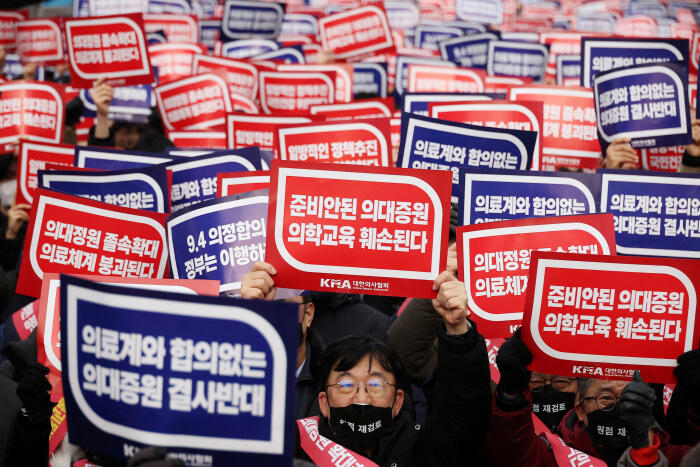In a plot twist that’s capturing national attention, South Korea’s health minister has issued a stern warning to trainee doctors who have been on a walkout since February 20th. Around 9,000 resident and intern doctors, comprising about 70% of the country’s total, have joined the protest against government plans to increase medical school admissions. This standoff has led to the cancellation of surgeries and treatments, straining emergency departments across the country.
Health Minister Cho Kyoo-hong minced no words in a televised briefing, stating that authorities will begin inspecting hospitals to identify and take legal action against trainee doctors who have not returned to work. Cho emphasized that those who continue the protest may face severe consequences, including suspension of their medical licenses and even fines or jail time.
For the protesting doctors who have returned to work, Cho assured that the government would consider any extenuating circumstances before taking action against them.
The government’s firm stance has sparked concern among patients outside major hospitals, with many worried about the potential impact on their treatment. A patient named Song expressed the sentiment of many, urging doctors to prioritize patients’ well-being and engage in dialogue with the government to resolve the standoff swiftly.
Meanwhile, the Korean Medical Association (KMA), representing private practitioners, has organized mass rallies in support of the protesting doctors. The KMA has criticized the government’s approach, calling it a “witch-hunt” and urging officials to reconsider their medical reforms.
Internationally, the World Medical Association has condemned the South Korean government’s actions, stating that doctors have the right to collective action, including strikes.
At the heart of the issue is the government’s plan to increase medical school admissions by 2,000 starting in 2025. While the plan is popular among the public, with 76% in favor according to a recent poll, critics accuse President Yoon Suk Yeol’s government of not consulting enough and politicizing the issue ahead of parliamentary elections in April.
This standoff echoes a similar situation in 2020 when then-President Moon Jae-in shelved a plan to increase doctor numbers following a strike by trainee doctors amid the COVID-19 pandemic.
As the drama unfolds, the fate of South Korea’s healthcare system hangs in the balance, with patients, doctors, and the government locked in a high-stakes battle over the future of medical care in the country.
(Source: NBC News | Reuters | Al Jazeera | PBS)









